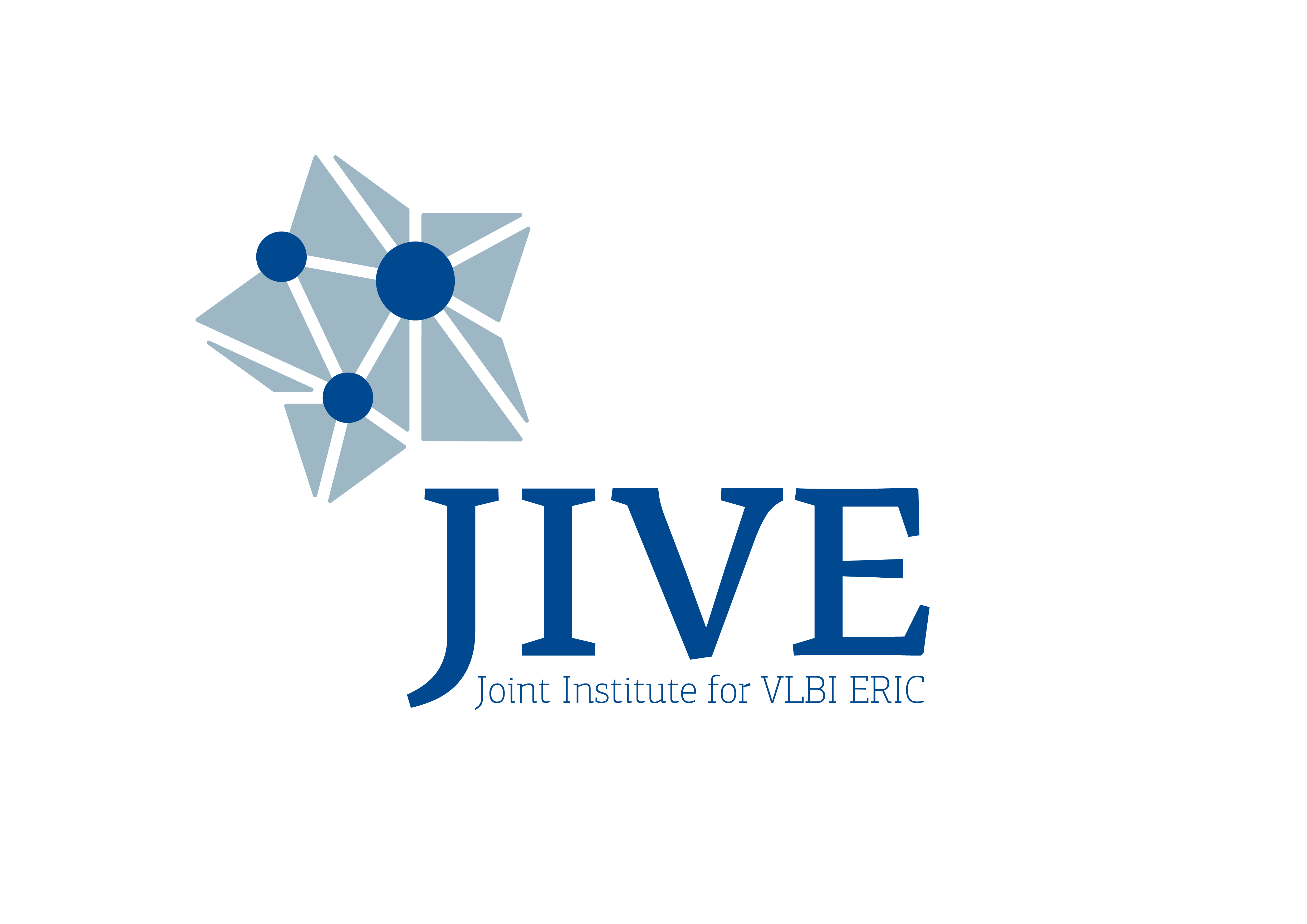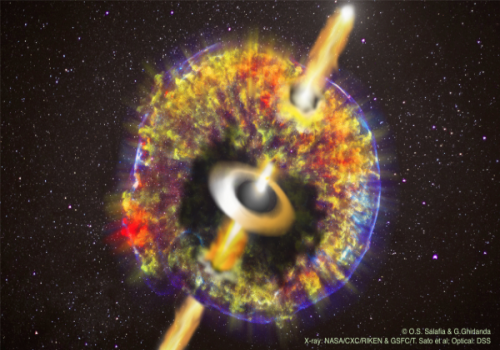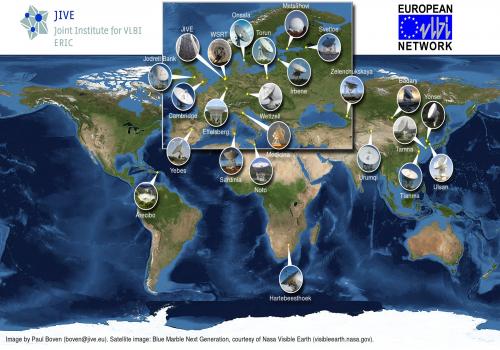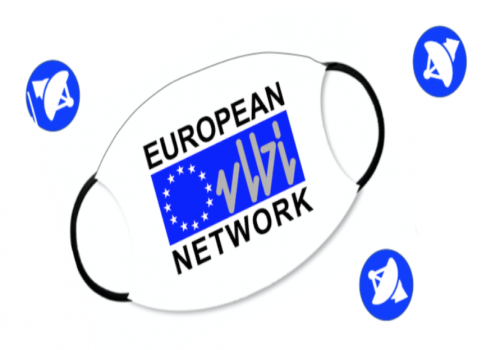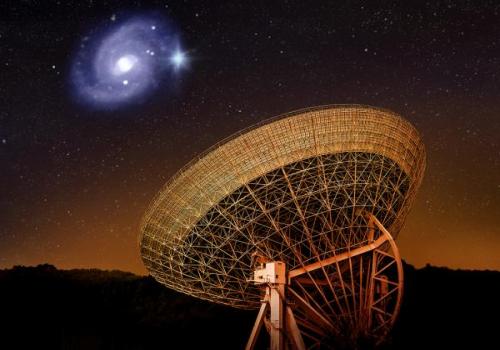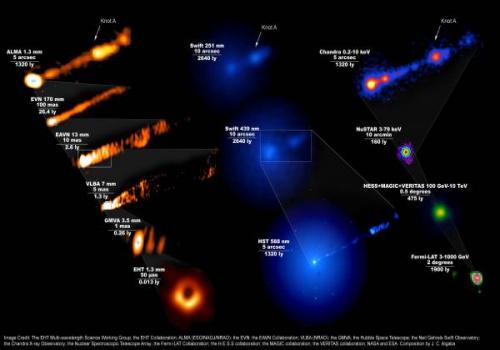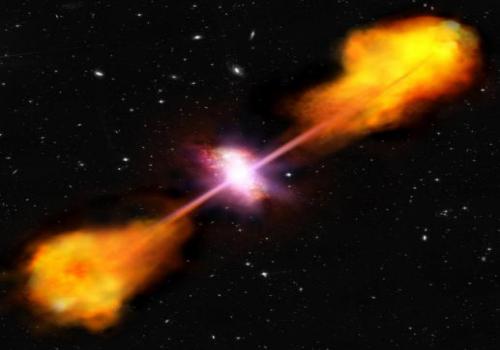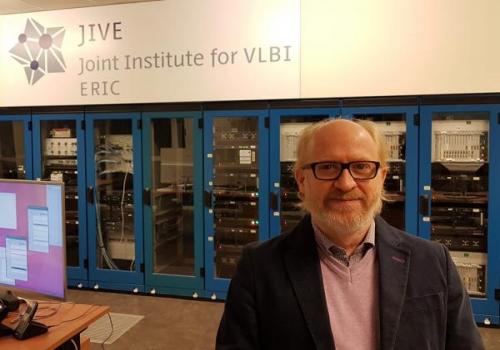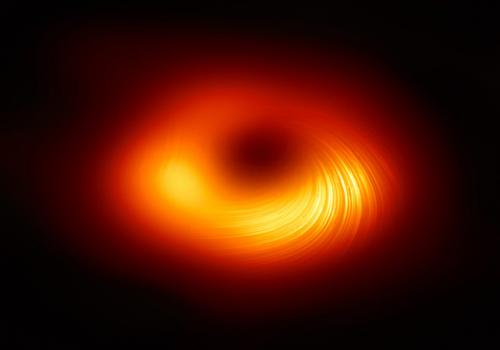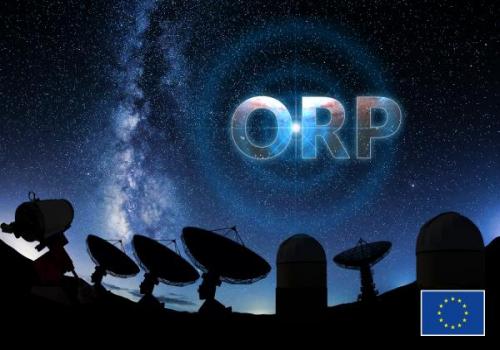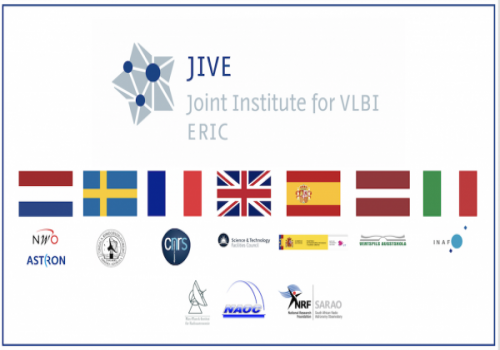News
The JUMPING JIVE project supports the organisation of the "Extreme astrophysics at extremely high resolution" Special Session at the largest conference for European Astronomy
24/06/2021
On Tuesday 29 June 2021, the Special Session "Extreme astrophysics at extremely high resolution" will highlight the latest scientific results of high-resolution radio instruments, such as the European VLBI Network (EVN) and similar arrays, with particular focus on the synergies with high resolution and high energy phenomena across the electromagnetic spectrum. The session is being organised with the support of the H2020 JUMPING JIVE project as part of the European Astronomical Society 2021 (EAS 2021) Annual Meeting held virtually from 28 June to 2 July 2021.
The EVN/JIVE Newsletter #59 (May 2021 Issue) is published
04/06/2021
The May 2021 issue of the EVN/JIVE Newsletter is now available and includes relevant updates of the European VLBI Network (EVN). The May 2021 Newsletter can be accessed here.
EVN Mini-Symposium and Users Meeting 2021
10/05/2021
An online EVN Mini-Symposium and Users Meeting will be held during July 12-14, 2021. The EVN Symposium normally takes place every two years, and is the main forum for discussion of the latest Very Long Baseline Interferometry scientific results and technical and technological developments within the EVN member countries.
Famous fast radio burst FRB20180916B just barely lets itself be captured
10/05/2021
Two international teams of astronomers (with significant JIVE involvement) have narrowed-down the origin of the flashes produced in the famous fast radio burst FRB20180916B by examining them with the highest time resolution and at the lowest possible frequencies.
Telescopes unite in unprecedented observations of famous black hole
10/05/2021
In April 2019, scientists released the first image of a black hole in the galaxy M87 using the Event Horizon Telescope (EHT). However, that remarkable achievement was just the beginning of the science story to be told. Scientists from JIVE contributed to this global effort.
Black holes like to eat, but have a variety of table manners
10/05/2021
All supermassive black holes in the centres of galaxies appear to have periods when they swallow matter from their close surroundings. But that is about as far as the similarities go. That's the conclusion reached by British and Dutch astronomers from their research with ultra-sensitive radio telescopes in a well-studied region of the universe. They publish their findings in two articles in the international journal Astronomy & Astrophysics.
Francisco Colomer elected new Chair of the ERIC Forum
10/05/2021
Francisco Colomer, Director of JIVE ERIC, has been elected as the new Chair of the ERIC Forum. With the support of members from the Executive Board, he will be in charge of the strategic management and planning of the ERIC Forum, strengthening its dialogue and relations with key stakeholders such as the European Commission and the ESFRI.
Astronomers Image Magnetic Fields at the Edge of M87’s Black Hole
10/05/2021
The Event Horizon Telescope (EHT) collaboration, who produced the first ever image of a black hole, has revealed today a new view of the massive object at the centre of the M87 galaxy: how it looks in polarised light. This is the first time astronomers have been able to measure polarisation, a signature of magnetic fields, this close to the edge of a black hole. The observations are key to explaining how the M87 galaxy, located 55 million light-years away, is able to launch energetic jets from its core.
Launch of Europe’s largest astronomy network
10/05/2021
Two astronomy networks are coming together to form Europe’s largest ground-based astronomy collaborative network, the ORP, supported by €15 million of funding from the H2020 programme. The ORP will provide scientists with access to a wide range of instruments, promote training for young astronomers, and open the way to new discoveries. The project will, among others, facilitate access to the European VLBI Network (EVN) and the Joint Institute for VLBI ERIC (JIVE), develop tools to improve this access, and help develop models for long term sustainability of these research infrastructures.
Italy joins the JIVE ERIC
10/05/2021
As of March 12 2021, Italy has become a member of the JIVE European Research Infrastructure Consortium, joining the Netherlands (represented by NWO), the UK (STFC), Sweden (VR), France (CNRS), Spain (IGN) and Latvia (MES). JIVE is also supported by institutes in South Africa (NRF), Germany (MPIfR) and China (NAOC).
